Strategic In-stream Systems (STRAINS) is a long term, transdisciplinary initiative started by Commonstudio and sustained in collaboration with local partners. The south Indian city of Bangalore is a thriving megacity with a deep history and vibrant present. It’s also in the midst of a serious water crisis—drains choked with solid waste, disappearing wetlands, urban lakes which catch fire on a regular basis due to unchecked urbanization and untreated wastewater inflows. STRAINS proposes the notion of Provisional Green Infrastructure (PGI) as an immediate, flexible, and resilient response to this wicked urban challenge.
What we asked:
Rather than only waiting for large, expensive, and complex solutions to come online, can small-scale, bottom-up interventions have a measurable impact on the levels of contamination within the urban watershed?
What we discovered:
Focusing specifically on storm drains, streams and channels (known locally as "Nallahs") is an important but under-explored facet to the larger urban wastewater challenge. Existing best practices tend to focus on the revitalization and monitoring of large isolated waterbodies such as urban lakes. This is an important piece of the puzzle, but it is not enough. To date, relatively little focus has been placed on the status and importance of urban stormwater channels —the critical arteries which link these systems together and are often the primary source of contamination. Thus, focusing on the stormwater channels as a viable site typology represents a more direct and feasible scale of response, as well as a more preventative approach to the health of larger water bodies.
What we’re doing:
Working as a part of an interdisciplinary team of scientists, urban designers, and local organizations, we are currently engaged in ongoing schematic design, lab-based material testing, and small-scale “proof-of-concept” sites to bring the project online and demonstrate its potential. Each STRAINS intervention unit is comprised of three basic stages aimed at 1) diverting and collecting solid waste 2) slowing and and settling sediment and suspended solids, and 3) lowering Biological Oxygen Demand, excess nutrients and trace metals levels through bio filtration using locally available aggregate materials and spontaneous vegetation. Our initial findings demonstrate that these systems can be deployed and scaled at a low cost with an immediate positive impact on localized water quality. Other constraints we are currently designing for include issues of structural integrity amid seasonal flow variations and issues of cyclical maintenance.
Recent Press & Publications:
Phillips, D. 2019. We’re Not “Solving” Wicked Challenges through Design and Science. Is That Ok? The Nature of Cities (online).
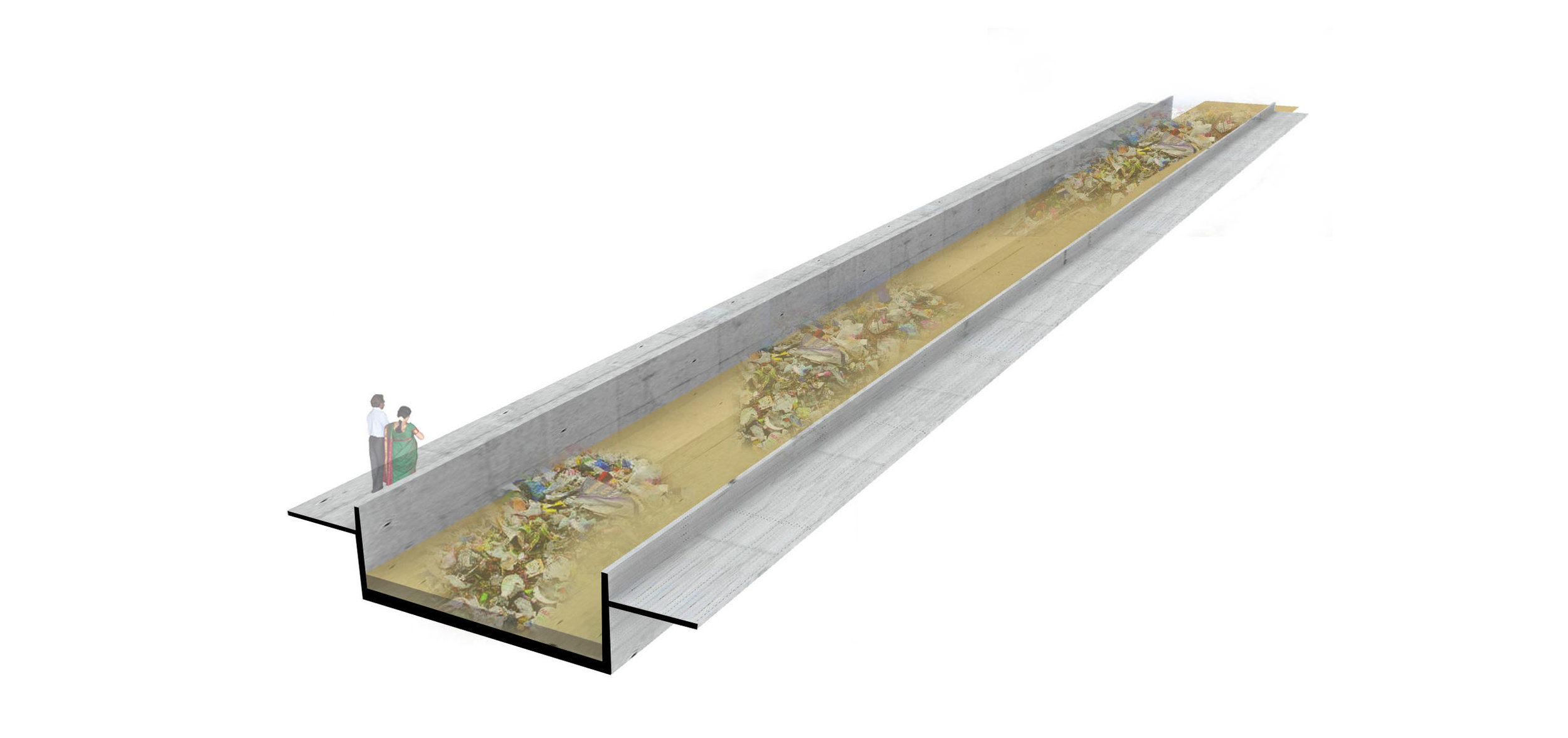
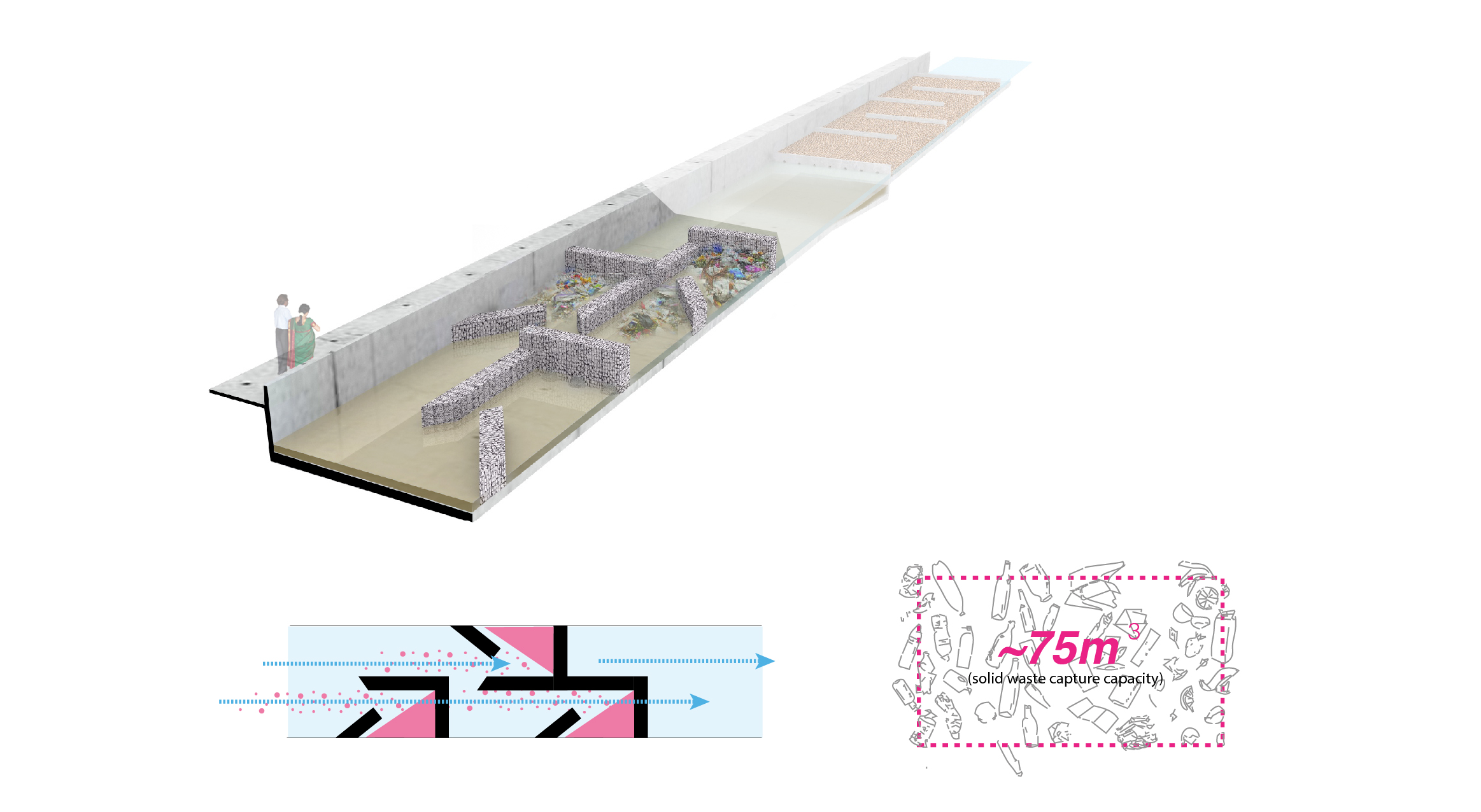
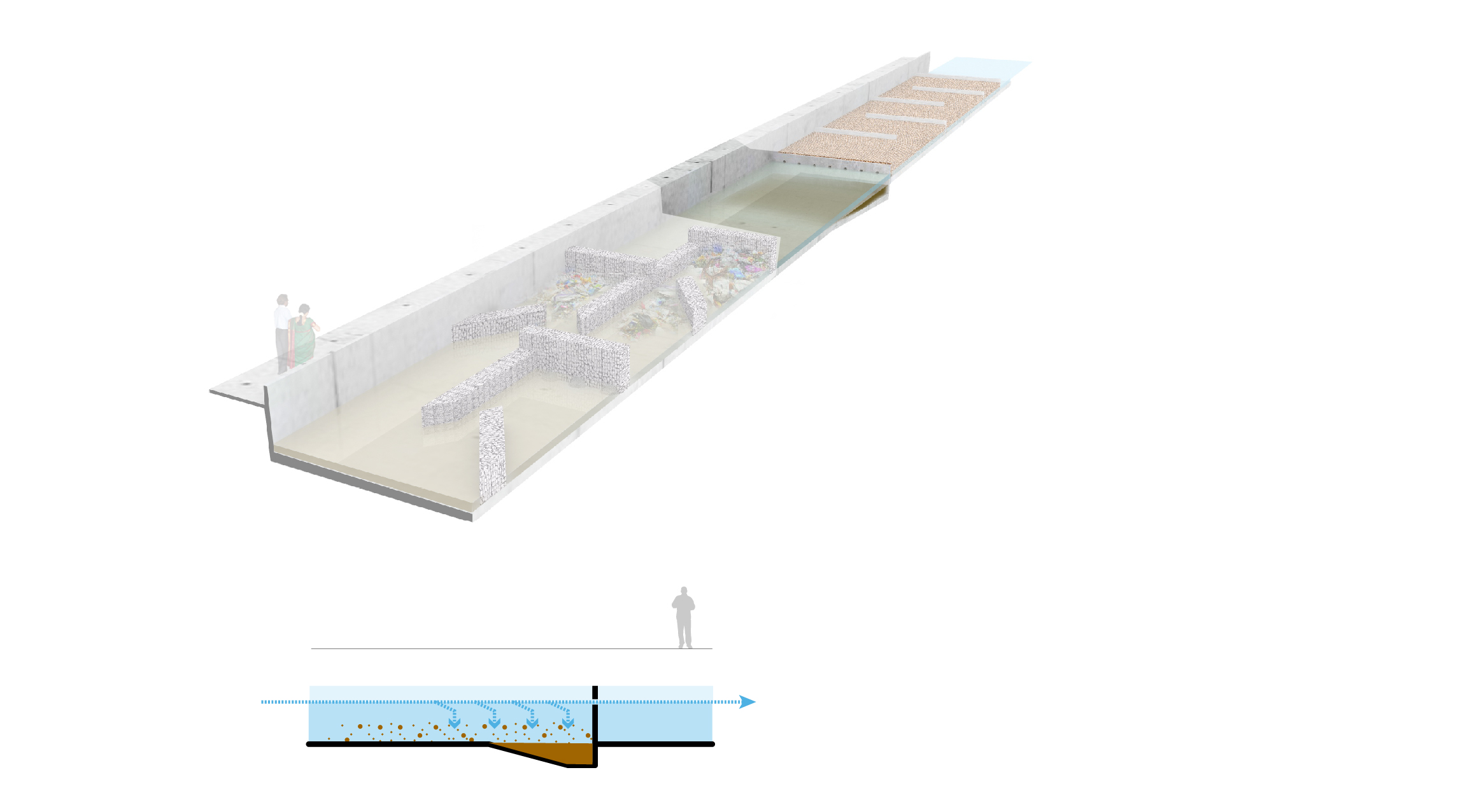
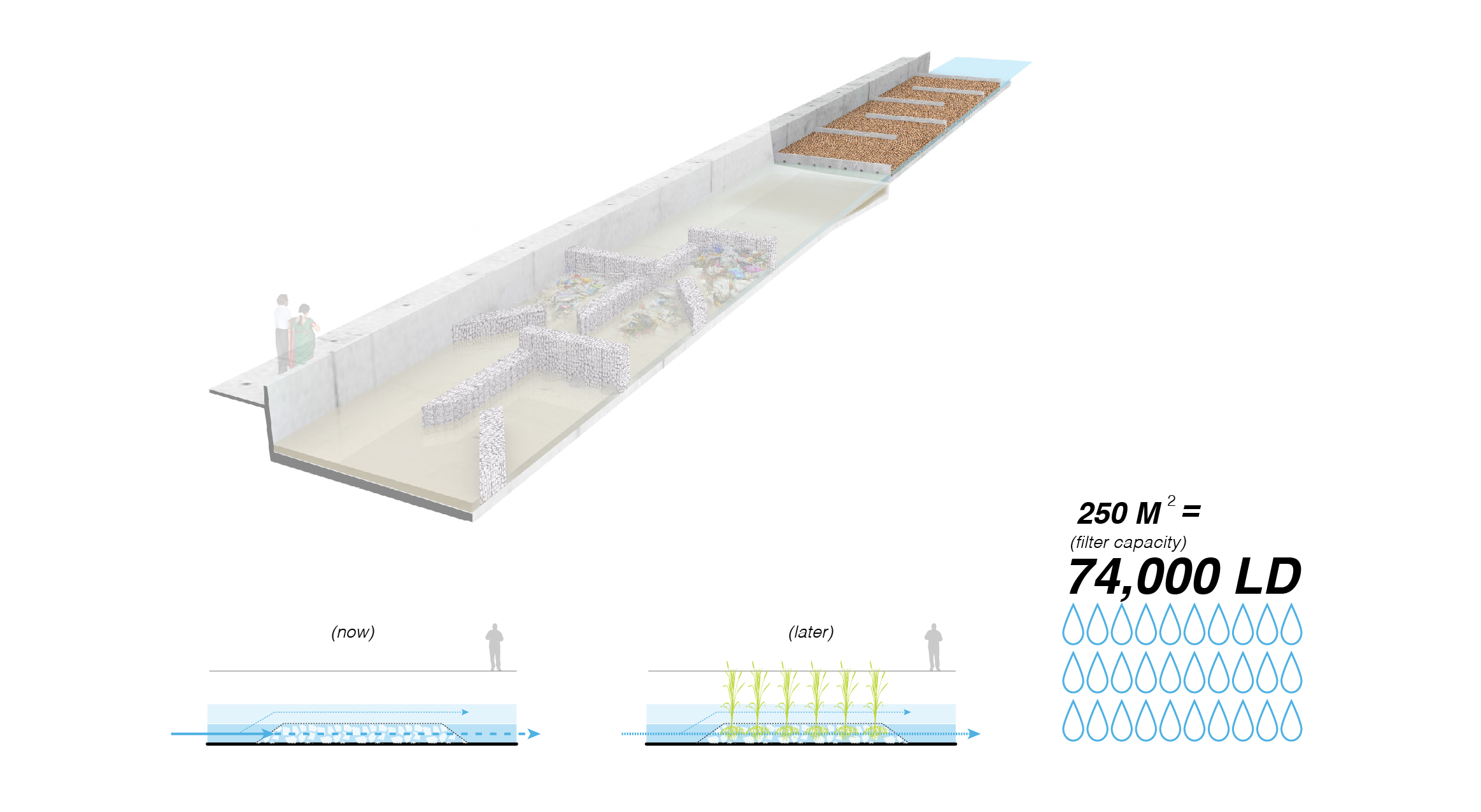
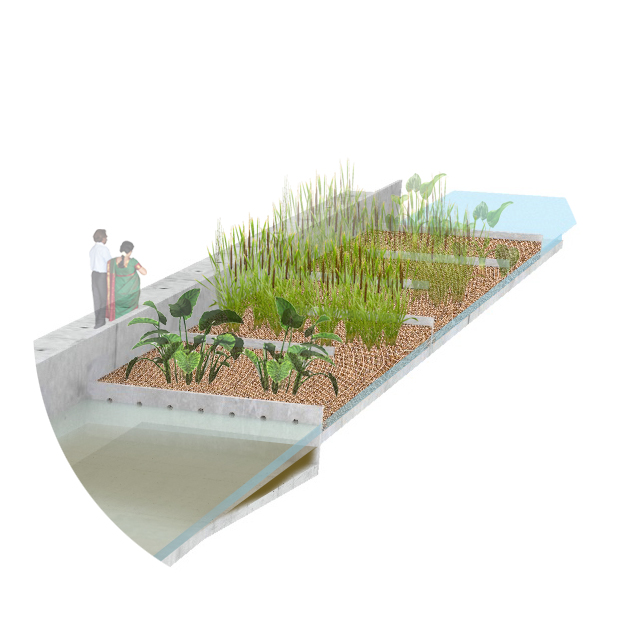
Research and Development currently underway:
Lab-Based Experiments
Modelling and city-wide strategic analysis
Local Demonstration Sites
Partners:
This project is being conceived and implemented in collaboration with our Indian colleague Dr. Priyanka Jamwal
Special thanks to the following individuals and organizations for their ongoing support and insight: Dr. Harini Nagendra, Dr. Aravind Madhyastha, Veena Srinivasan, Shubha Ramachandran, Nithya Ramesh, Venkat Jayagopi, Tapasya Mukkamala, Vinaya Mani, Rahul Agarwal, Vijay Nishanth, Ram Prasad, Sowmya Murugan, Ramya B., Friends of Lakes, MAPSAS Trust, Jalaposhan.
STRAINS is moving forward thanks in part to microgrants awarded by the Awesome Foundation and the Pollination Project, and the Bangalore Sustainability Forum. We appreciate their support for this ongoing work!












